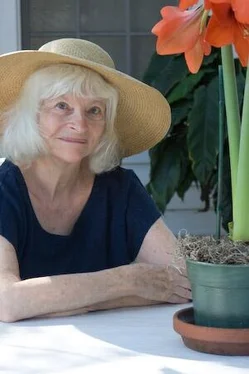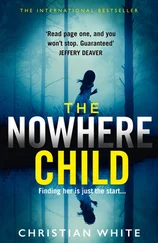“Phoebe Demeray’s having another kid? I didn’t hear that yet. That’s marvy.” Gloria smiled. “I wish I was having one.”
“She’s not telling it around yet, keep it—” Maxie broke off, looking at Glory. “Aw, no you don’t, honey.” Glory said nothing. A dreamy expression had appeared on her face. “Don’t be a kook. Think of your career: you know you got two big pictures lined up ahead of you. You don’t want to get yourself knocked up now.”
“Uh-uh.” Over the heads of everyone in the hall, Glory stared into the bright, smoggy distance out the window. “I think I’d really like to be knocked up.”
PART FIVE
International Airport
FOREVERNESS.
—Billboard poster for Forest Lawn
23
HIGH IN THE AIR, the jet hummed across the country, carrying Paul back towards California. Mountains and rivers and western cities rolled beneath it, dimmed to a uniform bluish-tan blur, though when he had left New England everything had glowed with the intense green of early summer.
The greenness of New England! He couldn’t get over it. The hills and meadows of new grass near Convers College, with mist white on them in the evening and dew shining in the morning. The air was clear, its distances softened by a blue haze of moisture, instead of the dirty yellowish mixture of gasoline fumes, soot particles, and irritants he had been used to. The rain falling seemed miraculous too; he exclaimed over it naively to his friends, explaining that in Los Angeles it had not rained for a year and a half.
Paul’s friends had smiled when he told them this, thinking he exaggerated. They were glad to see him, though: they greeted him almost as if he had come back from the dead. The truth is that when you go West you do vanish as far as most Easterners are concerned; he could remember feeling this about others. It was worse than death really—there wasn’t even any mourning.
Paul was also delighted to see his friends. He had forgotten how many people he knew in Cambridge, most of whom also knew each other. That was another thing about the East: the interlocking nature of society there, wrapped about itself like a grapevine. Whereas life in Los Angeles had the infinitely branching pattern of exploding fireworks—lines moving on a dark field, which never crossed, or crossed only by accident. In the East you had to go three thousand miles to disappear, but in L.A. you could do it by changing jobs and moving a few blocks. The way people treated each other there seemed to imply this: there was something anonymous, after all, about it.
Seeing the people he knew in Cambridge again, Paul realized that most of his relationships in Los Angeles, for instance with Fred Skinner, were comparatively shallow, acquaintances of convenience. These were his real friends: they spoke his language, shared his past; they wished him well. He remembered how Skinner had reacted when he heard that Paul was going East for the interview. “Letting the side down, huh?” he had said, his mock anger covering real anger. “Selling yourself back to those academic bastards for pennies.” On the other hand, Howard Leon, the head of the Publications Department, had surprised Paul by congratulating him. “I’ve always felt this wasn’t the place for you,” he had remarked. “After all, this isn’t a serious operation from an historian’s point of view.”
“An historian’s point of view.” Recollected on his way East, the words had made Paul uneasy. He wondered whether, after so many months in Los Angeles, he were still an historian. He thought of the heaps of index cards spread out on the desk in Mar Vista, with dust particles collecting on them. In imagination he saw the smog gathering inside his mind, too, month after month, until—
But thank God, that had turned out to be an illusion. Even the first evening, sitting in a friend’s apartment in Cambridge, he could feel the internal smog lifting, and something like an historical sense waking; he heard himself beginning to think again in terms of political, cultural, economic movements and meanings. The next day in Convers, as he talked to the history staff about his thesis, their interest lit his, which had perhaps only been covered with ashes and not put out. He remembered, as it were, that he had (from an historian’s point of view) an exciting subject. He began to borrow books and write down titles of articles.
Another surprise was that, in talking to his friends and answering their questions about Los Angeles, he had begun to see it as an historian. Theories and connections that he had never worked out consciously flared up as he spoke. The basic thing about L.A., he explained, was that it lacked the dimension of time. As Katherine had first pointed out to him, there were no seasons there, no days of the week, no night and day; beyond that, there was (or was supposed to be) no youth and age. But worst, and most frightening, there was no past or future—only an eternal dizzying present. In effect, the city had banished historians as Plato had poets from his Republic. The Nutting Research and Development Corporation cared nothing for history, he said, and even feared their own. They had hired Paul to work in their office because they wished to have him working in their office, in the present tense, and to demonstrate him to visitors.
Paul’s friends smiled and laughed as he talked, astonished that such things should be. “Barbaric!” they exclaimed, and looked upon him with mild awe, as upon an anthropologist returned from a year with some native culture. They did not, of course, see the dark side of it: they didn’t know what it was like for someone to be born and brought up in a world where history does not exist. Ceci O’Connor, for instance. For Ceci (as for Nutting) life was not the sum of all she had ever been, seen, and done—but a small area illuminated in a vast landscape of dimness, as if by the moving beam of a flashlight in a darkened room.
That was why morality in the dimension of time meant so little to her, and morality in other dimensions so much. A black feeling came over Paul as, rushing through the stratosphere towards Los Angeles, he thought of Ceci. On her own terms he had treated her badly and selfishly; which was no excuse, because not to treat someone on their own terms was in itself selfish. In Ceci’s book he was, in fact, a cheap shit.
But he wasn’t really like that, Paul pleaded to the slowly darkening upper air outside the window. They were crossing the San Bernardino mountains now: bare rocks, glowing red in the setting sun, looking like the mountains of hell. At least, he hadn’t used to be like that. For the girls he knew in the East he was “honest,” “serious,” “so great,” and they had told him so, several within the last few days. Embracing him with whirlwind warmth, or pressing his hand in quiet significance, according to their natures, they exclaimed how much they had missed him, how glad they were he was coming back—suggesting long, long talks, perhaps more, to come. He had managed to have lunch with one of them, a girl named Amy, and after she had brought him up to date on the intimate side of her life (“Oh, Paul, you always understand everything so well, you make me feel much better”) he had tried to tell her about Ceci. “I had a love affair in Los Angeles with a waitress,” he began badly. “Really?” Amy smiled, and he heard a fake pastoral note in his voice, as if he were some eighteenth-century European bourgeois confessing his amours with a charming dairy-maid. He tried again. “She wasn’t a waitress really: she was a painter. She just worked as a waitress. She was a sort of beatnik actually.” Amy was still smiling fondly at the traveler’s tale. It was at this point, he thought, that he had begun to see how he had behaved to Ceci. “The thing was,” he said loudly, “I really loved her. I was in love with her.” This was more than he had ever told Amy, but she took no notice. “Oh, Paul,” she said, laying her hand on his arm. “It’s so wonderful to see you again. Nobody else I know has the same kind of—I don’t know—enthusiasm that you have. They don’t really live, none of them.”
Читать дальше












